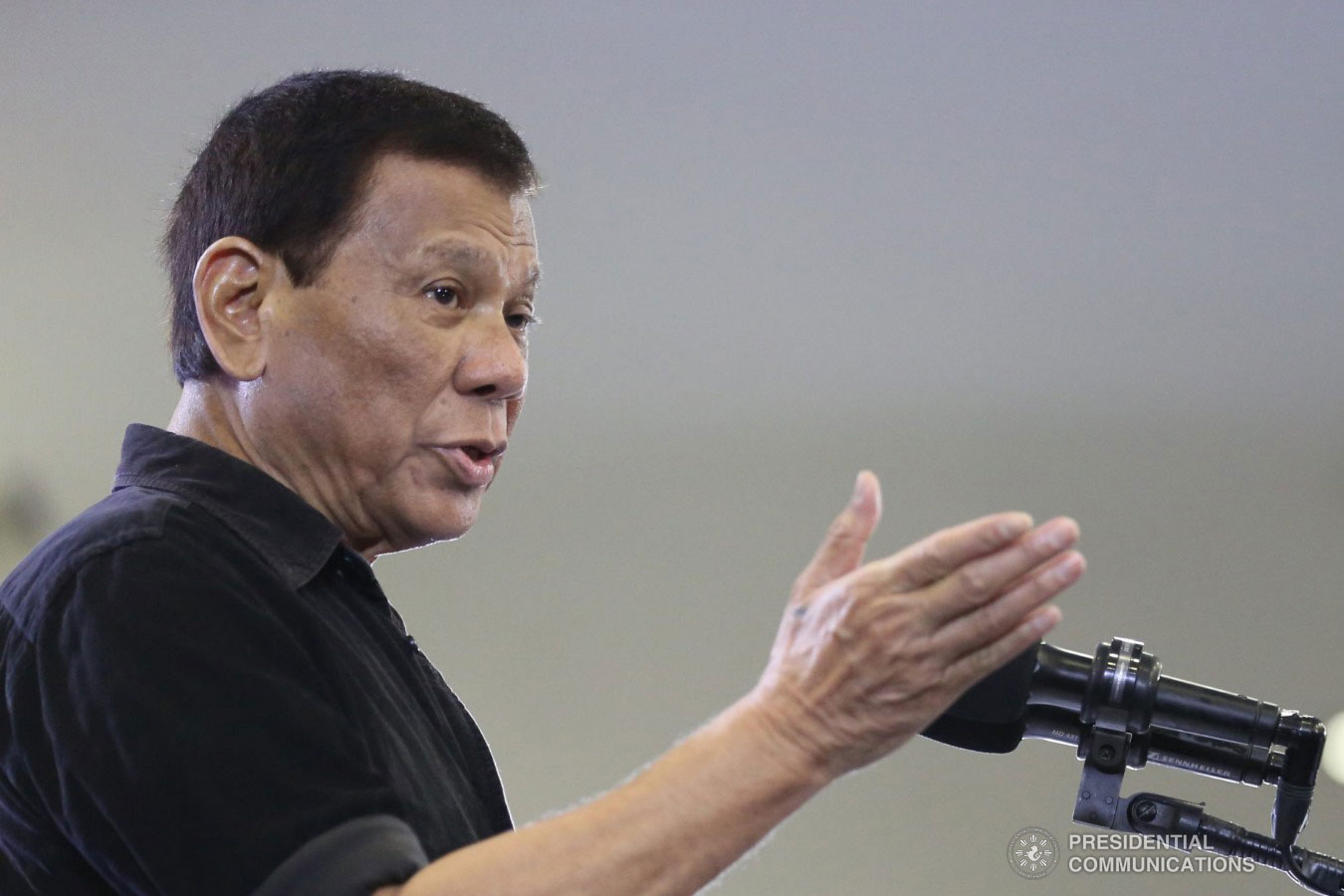Headline
Duterte revives barter trade in Mindanao

FILE: President Rodrigo Roa Duterte, in his speech during the League of Municipalities of the Philippines (LMP) Luzon Island Cluster Conference at the SMX Convention Center in Davao City on October 22, 2018, reiterates his stern warning to the public officials to avoid getting involved in any illegal activities. RENE LUMAWAG/PRESIDENTIAL PHOTO
MANILA – President Rodrigo Duterte has revived the barter trading in Mindanao to promote more economic activities and development in the region.
On Monday, Duterte signed Executive Order No. 64 constituting the Mindanao Barter Council (MBC), which will supervise, coordinate and harmonize policies, programs and activities on barter in the southern Philippines.
The MBC has been directed to facilitate the creation of an enabling environment conducive to the growth and development of the region; formulate and issue rules and regulations on the registration of qualified traders; issue comprehensive guidelines and review existing policies.
The Council shall be composed of the Department of Trade and Industry (DTI) Secretary as chairperson, and the chairperson of the Mindanao Development Authority (MinDA) and Commissioner of the Bureau of Customs (BOC) as vice chairpersons.
Representatives from Finance, Foreign Affairs and Agriculture departments as well as from the Marine Industry Authority, Philippine Coast Guard, Philippine Ports Authority and DTI-ARMM will serve as MBC members.
The MBC may also invite representatives from among the major Muslim ethno-linguistic groups, such as but not limited to the Tausug, Maguindanaoan, Maranaw, Yakan and Samal to participate in its undertakings.
The revival of barter in Mindanao is seen to not only create jobs and business opportunities but also strengthen trade and commerce between and among member-states of the Brunei-Indonesia-Malaysia-Philippines-East ASEAN Growth Area (BIMP-EAGA).
It is also consistent with the 10-point socio-economic agenda of the Duterte administration to promote rural and value chain development.
According to the EO, goods traded under the barter system “shall enter Philippine territory only through Barter Ports” with the help of the BOC.
“Qualified traders of allowable barter goods shall import or export only after securing the required goods declaration or export declaration, clearances, licenses and any other requirements prescribed under existing laws,” the EO reads.





















